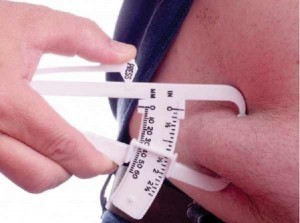Step into the Spotlight with Dr. Sievers and Coach Karen:


Digestion begins in the mouth, so it’s important to take time to chew your food slowly. Studies show that eating while watching TV or working on the computer increases cortisol, a stress hormone which slows digestion by lowering gastric acid, digestive enzyme secretion and gut motility. Improperly digested food often feeds the “bad” bacteria in the intestines. This has several ramifications. For example, many people complain that vegetables and other high fiber foods give them gas. This happens because there is less “good bacteria” to aid in digestion. It has been shown that obese people have more bad bacteria then lean people (“Obesity and the Gut” Nature Dec 2006). Bad bacteria feeds on nutrients we need from our food, which leads the body to a state of deprivation, causing fatigue, food cravings and, ultimately, weight gain. Worse, the bad bacteria actually produce its own carbohydrates which can cross over into our metabolic processes. The bottom line: you are getting extra calories that you did not even eat!!!
Step into the Spotlight:
Q: I am trying hard to change my diet so I can lose weight and have more energy. However, every time I try to add in more veggies and beans, I get gassy and bloated several hours later. I also suffer from severe heart burn, constipation and anxiety. I have had an upper scope to look at my esophagus and a colonoscopy, yet both test results returned normal. Still, I am on several meds for acid indigestion. I want to eat better, but cannot seem to tolerate it and find myself craving breads and pastas. Can you help?
A: First, congratulations for trying to make a change for the better!
A similar case with a recent client will shed some light on your situation.
Keith had been a patient of mine for a few years. At least 75 lbs over weight, Keith suffered from severe chronic constipation, acid reflux, fatigue, anxiety and depression. Although he desired to be treated naturally, he ended up on several medications. A comprehensive stool study revealed he lacked beneficial flora (bacteria) and low pancreatic enzymes. I explained to him that all of his problems, including his depression, could stem from his poor GI health. Despite my best efforts to help Keith, he wasn’t motivated to stick to a program. I referred him to Karen and with proper guidance, tools and accountability, his health and life were transformed.
Keith arrived at Karen’s office saying he was, “sick and tired of being sick and tired.” Based on a comprehensive stool analysis, I knew the first thing we had to do was get Keith’s digestion under control. He was placed on high quality mixed probiotic and digestive enzymes.
Karen then discussed a wellness plan designed specifically for Keith and he committed to stick to it. Next, Karen removed all processed foods from Keith’s’ diet and started him on a vegetable cleanse with her special raw vegetable smoothie. Initially he was skeptical of the plan because, like you, he experienced a lot of gas and bloating with veggies and therefore ate very little of them. This vegetable smoothie was perfect for Keith. Since the blended veggies were already broken down, they were much easier for Keith to digest. Karen explained that this made the nutrients 500 times more absorbable than if he had eaten them whole. Plus, it was very time efficient. Keith could drink it on his way to work and was able to get more veggies in the morning then he had previously been getting in a whole week.
Keith’s motivation grew. Incorporating smoothies, along with the probiotics started to change the bacterial content of his intestines and within two weeks he was able to add some beans. Within one month Keith was able to tolerate all vegetables and beans in his diet without problems. Slowly, his cravings decreased and his constipation lessened. He also found he was using less over-the-counter antacids. Keith’s energy and mood had greatly improved. He was then carefully weaned off his prescription antacids, anti-depressants and his anti-anxiety meds were significantly decreased. After six months of continued coaching and a personalized diet plan, Keith lost over 60 lbs.
I hope you found Keith’s story helpful. If you would like to benefit from a personalized life plan such as Keith’s, we hope that you will come in for an evaluation. To read his testimonial, please visit www.lovemybestbodynow.com.
All information contained herein is the opinion of the writers. It is intended to provide helpful and informative material on the subjects addressed and is not meant to malign any pharmaceutical or, nutraceutical company, medical profession or organization. Readers should consult their personal physicians before adopting any of the recommendations or drawing inference from information contained herein. The writers specifically disclaim all responsibility for any liability, loss, risk — personal or otherwise — incurred as a consequence, directly or indirectly, from the use and application of any material provided.
Teresa A. Sievers, MD
Restorative Health & Healing Center
10201 Arcos Av., Suite 201, Estero
Learn more about Dr. Sievers at:
www.rhhcenter.com
Karen R. Callan, CHC, AADP
Certified Health Coach
10201 Arcos Ave., Suite 201 Estero
239-405-9169
Learn More About BEST BODY NOW at:
www.lovemybestbodynow.com
 Southwest Florida's Health and Wellness Magazine Health and Wellness Articles
Southwest Florida's Health and Wellness Magazine Health and Wellness Articles
